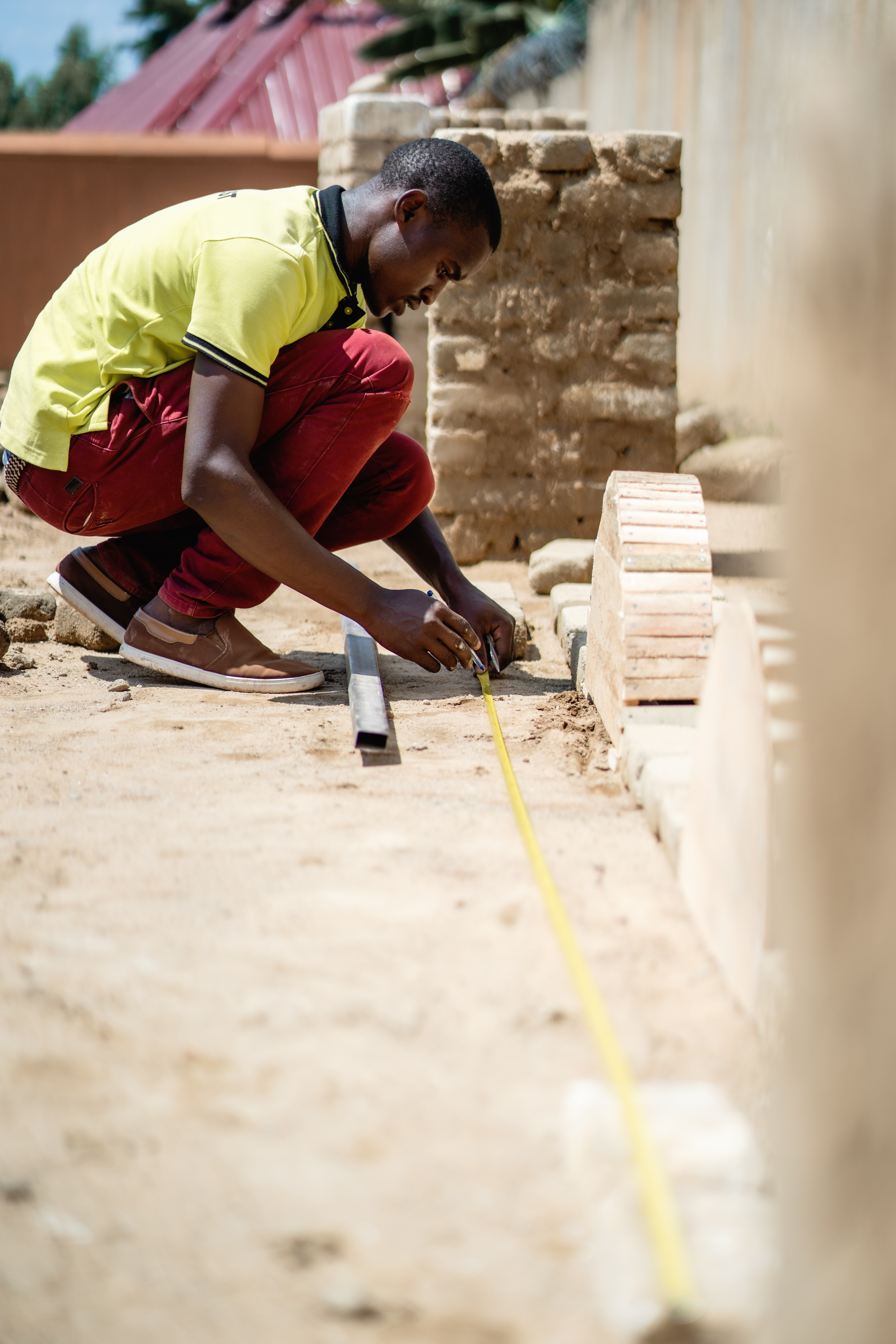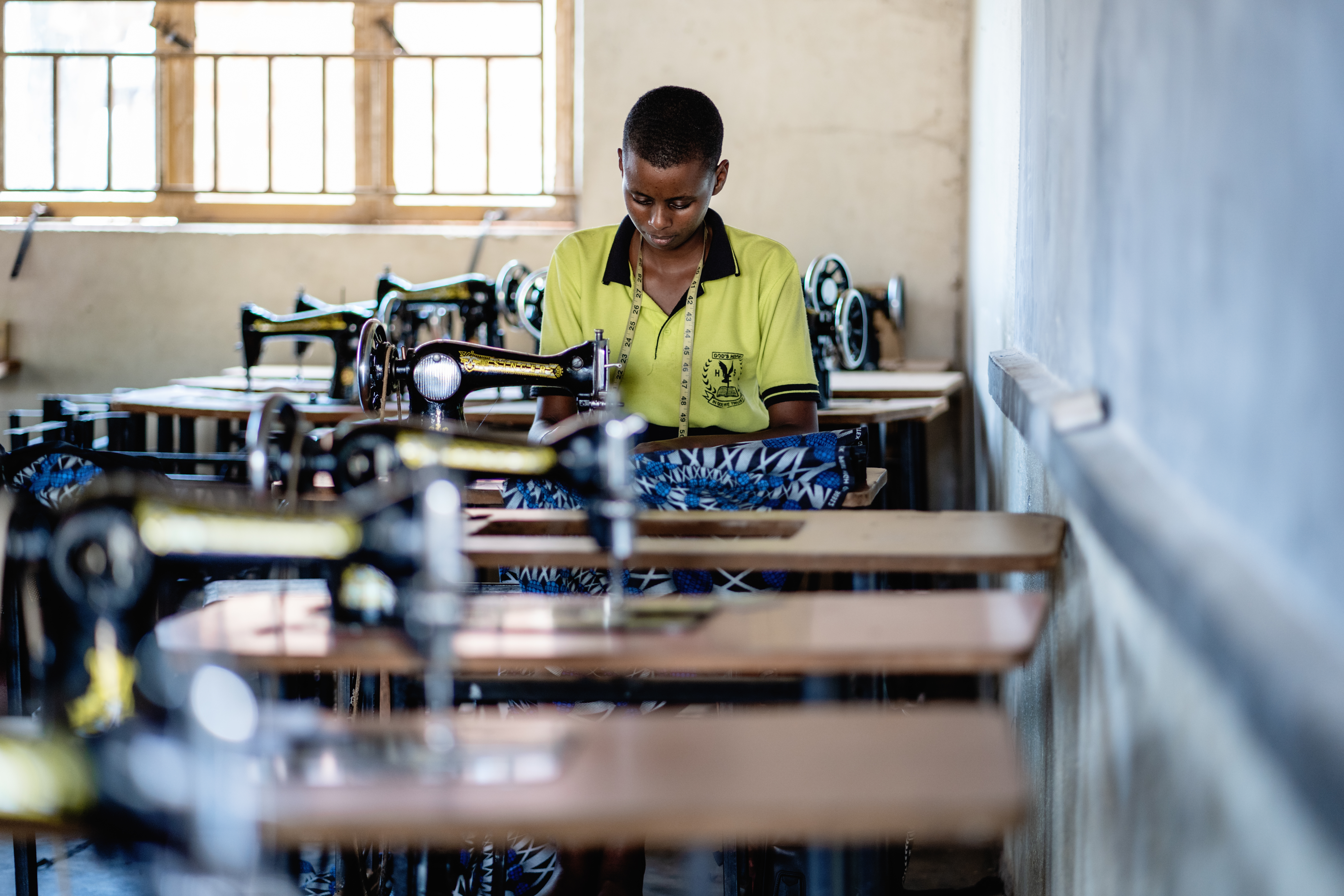Formal Education in Uganda
Traditional education in Uganda starts with 7 years of primary school that begin at age 6. Afterward, students must pass an exam to receive a Primary Leaving Certificate (PLC). Next, students complete 4 years of lower secondary education, which culminates in exams for the Uganda Certificate of Education (UCE).
UCE recipients have 3 options: continue to 2 years of upper secondary school, enroll in vocational school or a teacher training program, or enter the workforce. Upper secondary education culminates in examinations for the Uganda Advanced Certificate of Education (UACE), and graduates can enter the workforce or proceed to higher education.
The Benefits of Formal Education in Uganda
From the national education structure alone, it’s clear that achieving a UACE allows students the greatest number of options for their futures. The more formal education they receive, the more doors young Ugandans can keep open for themselves. In 2018, high-skilled workers made roughly double the wages of low-skilled workers; in 2019, 20.3% of Ugandans lived in poverty; and in 2020, only 1 in 5 had paid work. This means that earning at least a UCE or UACE is essential for avoiding poverty, and a college degree can lead to the highest-paying jobs.
Vocational Training in Uganda
However, there are significant barriers to attaining even the UCE in Uganda, and higher education is largely unaffordable. Fortunately, vocational training programs are now available for both PLC and UCE holders, and they can be completed in 1-2 years. These programs are even designed to allow students to complete them concurrently with their secondary education.
The Benefits of Vocational Training in Uganda 
Vocational education gives UCE graduates the skills needed to enter a variety of industries with medium-skilled jobs: catering, hotel management, metalworking, auto repair, tailoring, electrical wiring, and hairdressing. These skills have been proven to offer Ugandans better earnings and job mobility over time than employment without vocational training. Given that even college graduates face steep competition in the job market, vocational education is currently a reliable path to gainful employment, if not necessarily the highest-paid employment possible.
Support Ugandan Students with Simone’s Kids
You can help improve job prospects for Ugandans by supporting schools and education programs, which provide children with the tools they need to build a more promising future. Simone’s Kids in Nakaseke, Uganda provides education and meets basic needs for children in order to help them break the cycle of poverty. Learn more about our Vocational Program and how we are helping set our students up for a successful future!
You can maximize your impact with recurring donations to Simone’s Kids by joining The Village. The Village is a passionate group of donors committed to bettering the lives of children in Uganda by making monthly donations that help to provide better meals, more teachers, more activities, and even post-graduation services.
You can also make a difference by shopping at the Simone’s Kids Store or donating to Simone’s Kids. Your gifts help purchase school supplies, textbooks, food, and other necessities for Ugandan students. Consider doubling your contribution by asking if your employer participates in a donation match. Give today!

Leave a Reply
Want to join the discussion?Feel free to contribute!